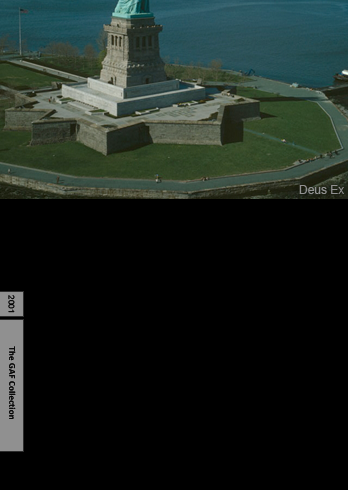It’s disturbing to be credited for games made by others, especially friends.
I recently saw my name attached to Bioshock 2, a game I greatly admire and played the hell out of, but on which I did not collaborate. Some of my friends inside Arkane and at 2K did, including Arkane’s Christophe Carrier and my friend and ex-roommate Jordan Thomas, creative director of Bio2.
Periodically, someone credits me with Thief, which I love, but did not work on. (I’m mentioned in special thanks for Thief 3, probably.) I think some people confuse me and Randy Smith; same last name, we worked together in the same roles at Ion Storm (Austin), we co-delivered a speech at GDC, and we’re both smoking’ hot (okay, well, he is at least).
The nature of the Internet, as a medium that excels at post-modern remixing of concepts, is probably the root cause of this problem; someone gets it close, but is off, then a bunch of people repeat the mistake, sometimes making it worse.
So here are my credits and the official bio I use for conferences and educational events:
Dishonored, Co-creative Director
KarmaStar (iOS), Designer/Producer
Blacksite, Studio Creative Director
Invisible War, Creative Director
Deus Ex, Lead Designer
FireTeam, Lead Designer
Technosaur (cancelled RTS), Creative Director/Producer
Cybermage, Associate Producer
Ultima VIII (CD re-release), Associate Producer
System Shock, Lead Tester
Super Wing Commander, Tester
Harvey Smith is a game designer who has been working in games professionally since 1993. Currently, he is co-creative director at Arkane Studios on Dishonored, working alongside Raphael Colantonio. In 2009, Smith released the iPhone game KarmaStar. From 2004 to 2007, he served as studio creative director for Midway Austin, managing the design department, starting three projects and shipping Blacksite during that time. He worked at Ion Storm’s Austin office from 1998 to 2004, acting as creative director of Deus Ex: Invisible War and lead designer on the award-winning Deus Ex, winning the 2000 BAFTA and many other awards. Prior to Ion Storm, Smith worked at Multitude, an Internet startup in San Mateo, CA. There he was lead designer of FireTeam, an innovative tactical squad game that was one of the earliest video games to feature voice-communications between players. He started his career at the pivotal game company Origin Systems, working as an associate producer on Cybermage and Ultima VIII, lead tester on System Shock and a play-tester on Super Wing Commander. He has written about numerous game design subjects and has spoken at the Game Developers’ Conference, MiGS, SxSW, E3, QuakeCon and other conferences. In 2005, he won the Game Design Challenge at GDC for his entry, Peacebomb! Smith has served on Advisory Boards for the SxSW Screenburn Festival and the Game Developers’ Choice Awards. In addition to working with Arkane Studios, he is currently pursuing an MFA with Savannah College of Art and Design, and has recently completed a novel, his third unpublished book, which he describes as a collision of Southern Gothic and Silicon Valley.



